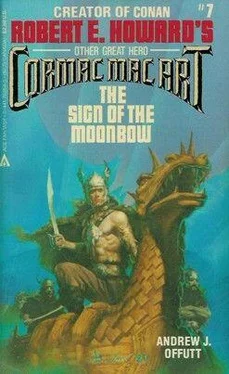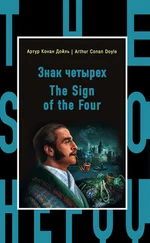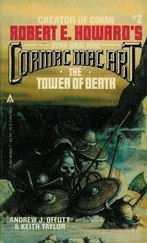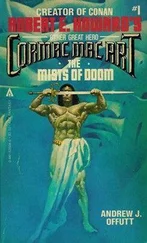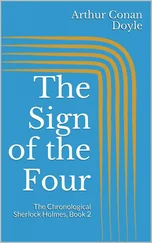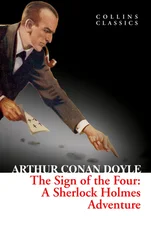Andrew Offutt - The Sign of the Moonbow
Здесь есть возможность читать онлайн «Andrew Offutt - The Sign of the Moonbow» весь текст электронной книги совершенно бесплатно (целиком полную версию без сокращений). В некоторых случаях можно слушать аудио, скачать через торрент в формате fb2 и присутствует краткое содержание. Жанр: Фэнтези, на английском языке. Описание произведения, (предисловие) а так же отзывы посетителей доступны на портале библиотеки ЛибКат.
- Название:The Sign of the Moonbow
- Автор:
- Жанр:
- Год:неизвестен
- ISBN:нет данных
- Рейтинг книги:3 / 5. Голосов: 1
-
Избранное:Добавить в избранное
- Отзывы:
-
Ваша оценка:
- 60
- 1
- 2
- 3
- 4
- 5
The Sign of the Moonbow: краткое содержание, описание и аннотация
Предлагаем к чтению аннотацию, описание, краткое содержание или предисловие (зависит от того, что написал сам автор книги «The Sign of the Moonbow»). Если вы не нашли необходимую информацию о книге — напишите в комментариях, мы постараемся отыскать её.
The Sign of the Moonbow — читать онлайн бесплатно полную книгу (весь текст) целиком
Ниже представлен текст книги, разбитый по страницам. Система сохранения места последней прочитанной страницы, позволяет с удобством читать онлайн бесплатно книгу «The Sign of the Moonbow», без необходимости каждый раз заново искать на чём Вы остановились. Поставьте закладку, и сможете в любой момент перейти на страницу, на которой закончили чтение.
Интервал:
Закладка:
“Dithorba and I have business elsewhere. Here lies him who put sore torment and indecent horror on ye all. Who will take this whip?” He stretched out his hand, the whip lying across it like a napping serpent.
It was the young man who stepped forward, he who bore the marks of that same strap of leather across his muscled belly and who limped from the wooden splinters that had been forced under his toenails. Dithorba had identified him as an officer in the household staff of Queen Riora, by name Tathill; the young woman bound near him was his sweetheart. Perhaps he would bear no physical scars of this imprisonment; she would, all her life.
“I will wield that black eel on the creature who made it sting so well,” he said quietly and with strain, “and yield it up to whomever wants it else.”
“I,” a weak voice said.
Cormac gazed not with shock but with sadness on the speaker, the older woman in rags, with the marks on her of obscene torments and mockery. Surely, the Gael thought, such as she would not have dreamed of vindictive whip-wielding before she’d been brought to this grey domain of pain and degradation. It hurt him only that he had not put his cloak on again, that he might clothe her in it. Elatha’s foul breechclout he would not offer her. Guards or other keepers would be outside bound doors, though obviously no sound of the battle here had reached their ears. At their dicing most likely, Cormac thought, and turned to look after Dithorba. The old mage was walking back into the dimmer area of the dungeon, his robe flapping and the one he’d brought for his queen hanging over his arm. He paused at the doorway of a wooden enclosure, and looked within. Cormac saw the man stagger as if struck, and heard his gasp.
And he heard the weak girlish voice: “Stay back!”
Cormac had taken a perverse pleasure in leaving the freeing of two men until last; they were the strapping, handsome Commander Balan of the Royal Guard and Torna, long Riora’s tutor and now most favored adviser. Now the Gael turned from the still bound pair and strode back past the torture table and light. Dithorba stood in dimness.
The chamber into which he stared was a square some ten feet on a side; a chamber of royal size for the imprisonment of Moytura’s royalty.
The slim young queen was within. She wore only a spiked girdle and collar of iron, both drawn tightly and held by cinch-pins. Her straw-coloured hair was dragged back and bound to the cruel girdle behind, so that her neck was constantly strained. Riora of Moytura was bound astride a great stone wheel, like a millwheel, that abraded her inner thighs and displayed her lewdly. Aye, and she’d been marked by Elatha’s whip. The dragging back of her tresses strained her face so that her brows were unnaturally arched and her cheekbones threatened to thrust through taut skin.
Tinted only by the faintest of tawny hue, her eyes swiveled from Dithorba at Cormac’s arrival. She stared at him.
When the Gael started forward, Dithorba stayed him.
“Lady Queen, a Gael from Eiru above, Cormac mac Art his name. He and a companion saved Erris from becoming a toygirl to a squad of six rapacious guards set over me, and slew them all. He freed me, and has just defeated Elatha though he bears wounds of the long fangwhip. All this, lady Queen, in quest of your freedom. The sounds my lady queen now hears are of Elatha’s own whip on his own foul body.”
“Talk and talk,” the Gael said. “Why stand we here?” Again he started forward.
“Stand ye back!” the queen bade him, and she winced at the pain the exertion put on her. Her hands were behind her back, her legs bracing the upright millwheel, to which ropes bound her. She softened the command: “-friend of Danu and Moytura-and Riora.”
“Your pardon for the questioning of a weapon man, lady queen… but why must we stay from yourself?”
“This I have… borne,” she said in the voice of strain forced upon her by the back-drawn hair. “I can… longer. For ye both, though, there’s death within this chamber… I am bound not only as ye see… but by the sorcery of Tarmur Roag ‘as well. Aye, and guarded… Cor-mac Mackart. There is a… Guardian.”
Cormac stepped close to the doorway to peer within the large chamber. He saw three walls of stone and one of wood; a chipped bowl of fired clay and a dented iron cup; a length of chain. Another hung from a nail in the wooden wall, as did a short flail with three tails of plaited leather… or rather the hide of some great denizen of the waters, as novas all leather of Moytura. Two crumpled bits of cloth lay forlornly on the floor. He saw naught else, not even a pile of stones.
“I see naught of menace or Guardian.”
“I am queen, Cormac… I am not… questioned.”
He gazed on this naked, whip-marked, painfully bound young woman with wonder and respect. An she could talk so in these straits, she was queen indeed!
“Ye cannot free me. Cormac. He who comes through that door, save for Elatha, will instantly die. Tarmur Roag… demonstrated. It’s he must be captured and forced to release me; I’ll have no champion such as your huge self slain so, for naught and to no avail.”
Cormac was hardly huge. He realized, though, that in Moytura he was. Standing beside Dithorba, he made a child of the man, both in height and physique. A thought of hope came on him.
“Dithorba! Can ye be mind-hurling me to her side, man?
The succinct reply shattered the Gael’s excitement: “No.”
Cormac’s face stiffened. After a moment, he asked, “Then… dare ye carry me to her, by your sorcerous means?”
“No!” the queen cried.
“In this matter, lady Queen, your commands are second to mine. It is possible for too much nobility to be on a person, even a monarch.”
Both Riora and Dithorba stared at this tall, darkskinned stranger to their land who dared speak so to a queen. Cormac kept his gaze expectantly on Dithorba, who realized the Gael still awaited his answer.
“I dare, Cormac mac Art.”
“No, Dithorba! I forbid it!”
Cormac saw to himself. Blood oozed no longer from his twice-punctured left arm. His buckler remained serviceable-hopefully. His right wrist bore only a pair of barring lines, with neither wound nor stiffness on him there. The wound to his leg was only to the superficial meat, not into muscle, nor had it had time to stiffen. His Saxon knife was in its sheath and his sword was ready for the drawing on the instant.
Deliberately he drew Dithorba away from the doorway, out of sight of the piteously imprisoned queen.
“We go in,” he said quietly. “The moment we alight, release my hand, and return ye here.” When Dithorba nodded, Cormac turned and shouted to those others they’d released. “Free Balan and Torna! Take up chains and Elatha’s dagger; whatever armament there be, and remain ye there-sentries may come.”
The last was an afterthought, added in hopes their weakness might be forgot in renewed fear that he knew led in some to renewed strength. Such surely would be the case at least with Balan and the young man who was showing his energy in the flogging of Elatha.
Cormac took Dithorba’s hand. “In.”
He said it too loudly; from her prison came Queen Riora’s weak shout: “No! It’s your death!”
Cormac felt Dithorba’s hand quiver and he gripped it the tighter. “ My command, Dithorba my friend,” he said softly, “In-and leave me.”
The familiar unpleasant sensations came immediately, and then Cormac was jolted, stumbling. Even so his hand fled Dithorba’s and leaped to the hilt of his sword. On this third occasion of his transport by means of another man’s mind, the Gael’s brain acid eyes cleared more swiftly.
His staring eyes saw that Dithorba had already left him, and was peering into the chamber from beyond the doorway. Their sorcerous means of transport had triggered no attack, for they had not passed through the door. Cormac stood in a crouch, feral-eyed and with sword and shield at ready. His slitted eyes swiveled to the side; he saw naught but Riora the Fair and Righteous.
Читать дальшеИнтервал:
Закладка:
Похожие книги на «The Sign of the Moonbow»
Представляем Вашему вниманию похожие книги на «The Sign of the Moonbow» списком для выбора. Мы отобрали схожую по названию и смыслу литературу в надежде предоставить читателям больше вариантов отыскать новые, интересные, ещё непрочитанные произведения.
Обсуждение, отзывы о книге «The Sign of the Moonbow» и просто собственные мнения читателей. Оставьте ваши комментарии, напишите, что Вы думаете о произведении, его смысле или главных героях. Укажите что конкретно понравилось, а что нет, и почему Вы так считаете.
